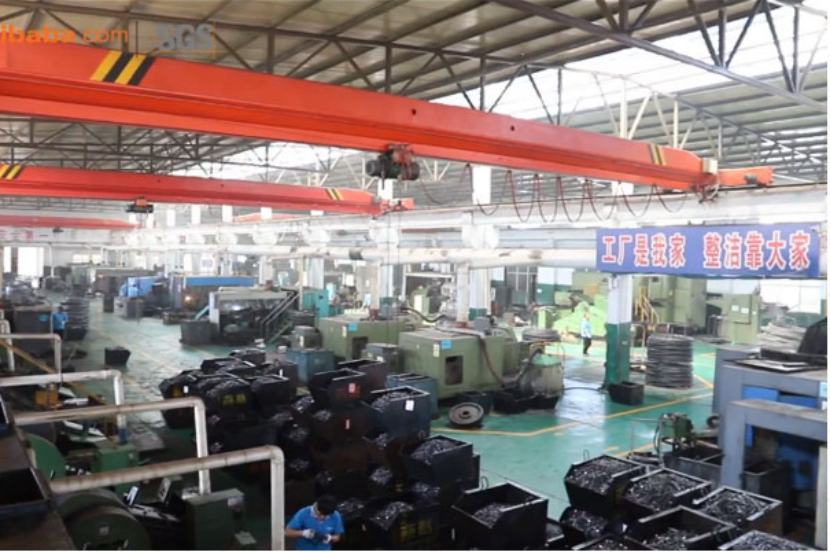stud bolt astm a193 gr b7 factories
Nov . 18, 2024 08:07 Back to list
stud bolt astm a193 gr b7 factories
Understanding Stud Bolts ASTM A193 Gr B7 and the Factories Behind Them
Stud bolts play a crucial role in various industries, providing essential fastening solutions for a wide range of applications. Among the numerous types of stud bolts, ASTM A193 Gr B7 is particularly notable for its strength and adaptability in high-temperature and high-pressure settings. To fully appreciate this essential component, it is vital to understand its specifications, applications, and the factories that manufacture such critical items.
What is ASTM A193 Gr B7?
ASTM A193 is a specification governing alloy-steel and stainless-steel bolting materials for high-temperature or high-pressure service and other special purpose applications. Within this specification, Gr B7 is one of the most prevalent grades, composed primarily of chromium-molybdenum steel. This composition not only ensures excellent mechanical properties but also enhances corrosion resistance, making it suitable for use in environments where these conditions may pose a challenge.
Stud bolts of the ASTM A193 Gr B7 grade typically exhibit yield strengths of up to 105 ksi (724 MPa) and tensile strengths ranging from 125 to 140 ksi (862 to 965 MPa). Their ability to withstand extreme temperatures and pressures makes them an ideal choice for industries such as oil and gas, power generation, petrochemical, and construction.
Applications of ASTM A193 Gr B7 Stud Bolts
The versatility of ASTM A193 Gr B7 stud bolts allows them to be utilized in a variation of settings. In the oil and gas sector, they are integral in pipe flanges, pumps, and valves, ensuring secure connections that are essential for safety and efficiency. In power plants, these bolts are indispensable for fastening high-pressure steam lines and pressure vessels. Additionally, their strength and resistance to heat make them ideal for chemical processing plants where reactive substances might be present.
Furthermore, these stud bolts are often used in construction projects, particularly in structural applications and large-scale manufacturing
. The durability and reliability provided by ASTM A193 Gr B7 stud bolts make them a preferred choice among engineers and manufacturers alike.Manufacturing Factories The Backbone of Quality
stud bolt astm a193 gr b7 factories

The factories that produce ASTM A193 Gr B7 stud bolts are critical in maintaining the standards set forth by the ASTM specification. A reputable manufacturer will employ advanced technology, skilled labor, and stringent quality control processes to ensure that every stud bolt meets the desired specifications before reaching the market.
Manufacturing processes typically include forging, machining, and heat treatment. During forging, the raw materials are heated and shaped into the desired form, while machining ensures precision dimensions. Heat treatment is crucial as it enhances the mechanical properties of the stud bolts, ensuring their strength and performance under extreme conditions.
Quality testing is another essential aspect of production, including tensile tests, hardness tests, and microstructural examinations. Many factories also adhere to ISO standards, further solidifying their commitment to quality and reliability.
Recent Trends in the Manufacturing of Stud Bolts
In recent years, there has been a growing emphasis on sustainability and eco-friendly manufacturing methods within the industry. Factories are increasingly adopting practices aimed at reducing waste and improving energy efficiency. Moreover, the trend towards digitalization and Industry 4.0 is transforming manufacturing processes, leading to advancements in automation and quality assurance.
Additionally, with the growing demand for high-performance materials, manufacturers are investing in research and development to innovate new alloy compositions that enhance the performance and longevity of stud bolts.
Conclusion
Stud bolts, particularly those made from ASTM A193 Gr B7 materials, are critical fasteners in many high-stakes industries. With their remarkable strength, corrosion resistance, and versatility, they are indispensable components that ensure the safety and efficiency of numerous systems. The factories that produce these essential products play a pivotal role in upholding quality standards and adapting to the evolving needs of the industry. As we move forward, a focus on sustainable practices and technological advancements will undoubtedly shape the future of stud bolt manufacturing.
Latest news
-
High-Quality Panel Stud Bolt Reliable Panel Stud Bolt Factory & Suppliers
NewsJul.08,2025
-
High-Precision Fine Thread Locknuts Manufacturer & Supplier Custom Solutions
NewsJul.08,2025
-
PH Imperial Stud Bolt – High Strength Fasteners from Leading Supplier & Factory
NewsJul.07,2025
-
High-Quality Allen Wrench Bolts Leading Factory, Company & Suppliers
NewsJul.07,2025
-
Wholesale Ball Stud Bolt - High Quality Supplier & Factory Price Reliable Wholesale Ball Stud Bolt Company
NewsJul.06,2025
-
High-Strength Alloy Bolts Manufacturer & Supplier Quality Alloy Fasteners Factory
NewsJul.06,2025
